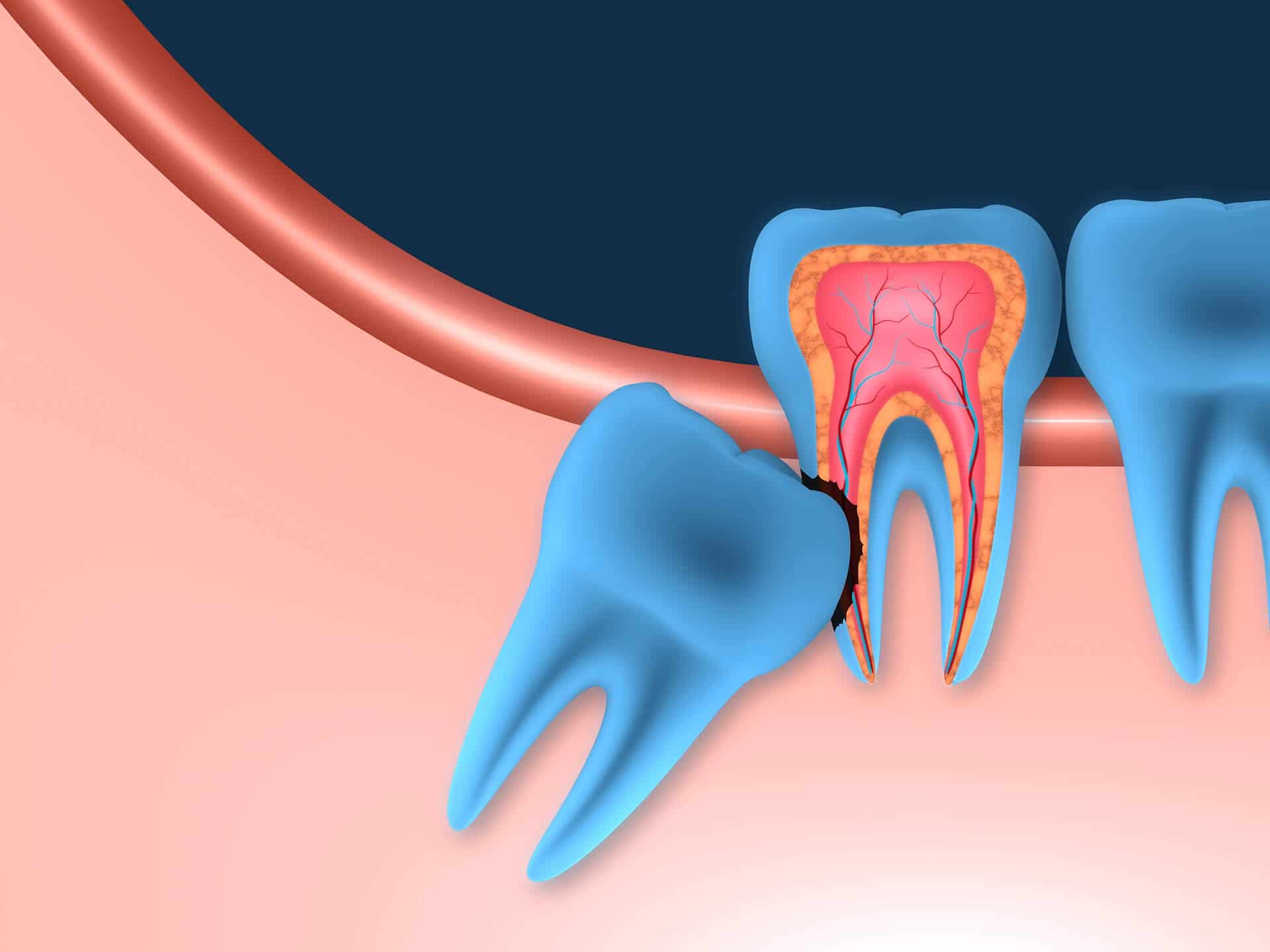Wisdom Tooth
A wisdom tooth is also known as the third molar. In general, wisdom teeth will grow out of the gums between the ages of 18 to 21. If the wisdom tooth erupts straight out, they do not need to be removed. However, these wisdom teeth does not always grow out as desired.
When they do not erupt properly, wisdom teeth can cause pain and infection. This is when the removal of these wisdom teeth becomes necessary. The procedure can be performed by specialists to ensure that the removal is safe and painless.
Wisdom Tooth Surgery
A wisdom tooth surgery is a procedure whereby the dentist performs a minor but delicate surgical procedure to safely remove a wisdom tooth that has not erupted as desired. Wisdom tooth surgeries are usually done under local anaesthesia. However, there is a small percentage of patients who are sensitive to pain and are anxious about the procedure, these patients have the option of having the removal done under intra-venous sedation. The intra-venous sedation, is done by a qualified specialist to help patients sleep comfortably throughout the procedure. Research has shown that wisdom tooth surgery is a very safe and straight-forward procedure.
With proper examination and x-rays analysis, dentists will be able to predictably and safely perform wisdom tooth surgical procedures. The x-rays helps the dentist to plan for a successful surgery and to note on details like the positioning of your wisdom tooth and how close the root is growing to the nerve that runs in the lower jaw. This is important as the compression of the nerve will cause the patient to experience some numbness to the lower lip.
There are some common discomfort that the patient will experience in the initial days after the surgery. Mild pain, bleeding and swelling lasting one of two days will be experienced, however, painkillers and other medication will be prescribed to aid with pain management and healing.
Benefits of Wisdom Tooth Removal

Saving of teeth
When wisdom teeth do not grow out straight, food trap will occur between the wisdom tooth and its adjacent tooth. The food trapped results in decay and gum disease which affect the wisdom teeth and its neighbouring teeth.Early removal of the wisdom tooth can prevent the loss of your initial molars.

Prevention of pain and swelling
Food trap between the wisdom tooth and its adjacent tooth can lead to infection. With infection, patients often experience severe pain and swelling. More serious problems such as the formulation of cysts or tumours around an impacted tooth can occur. This leads to the destruction of the surrounding jawbone, tissues and neighbouring teeth, leading to prolonged, costly treatments. If such serious conditions are not addressed, the infection could eventually become so severe that it becomes life threatening.

Elimination of bad breath
Patients often complain of bad breath due to the build-up of food and bacteria between wisdom tooth and its adjacent tooth or under the gums covering the wisdom tooth. Sometimes, people surrounding the patient can detect the rancid smell that emits from the patent’s mouth. When this occurs, the removal of the wisdom tooth causing the odour should do the job.
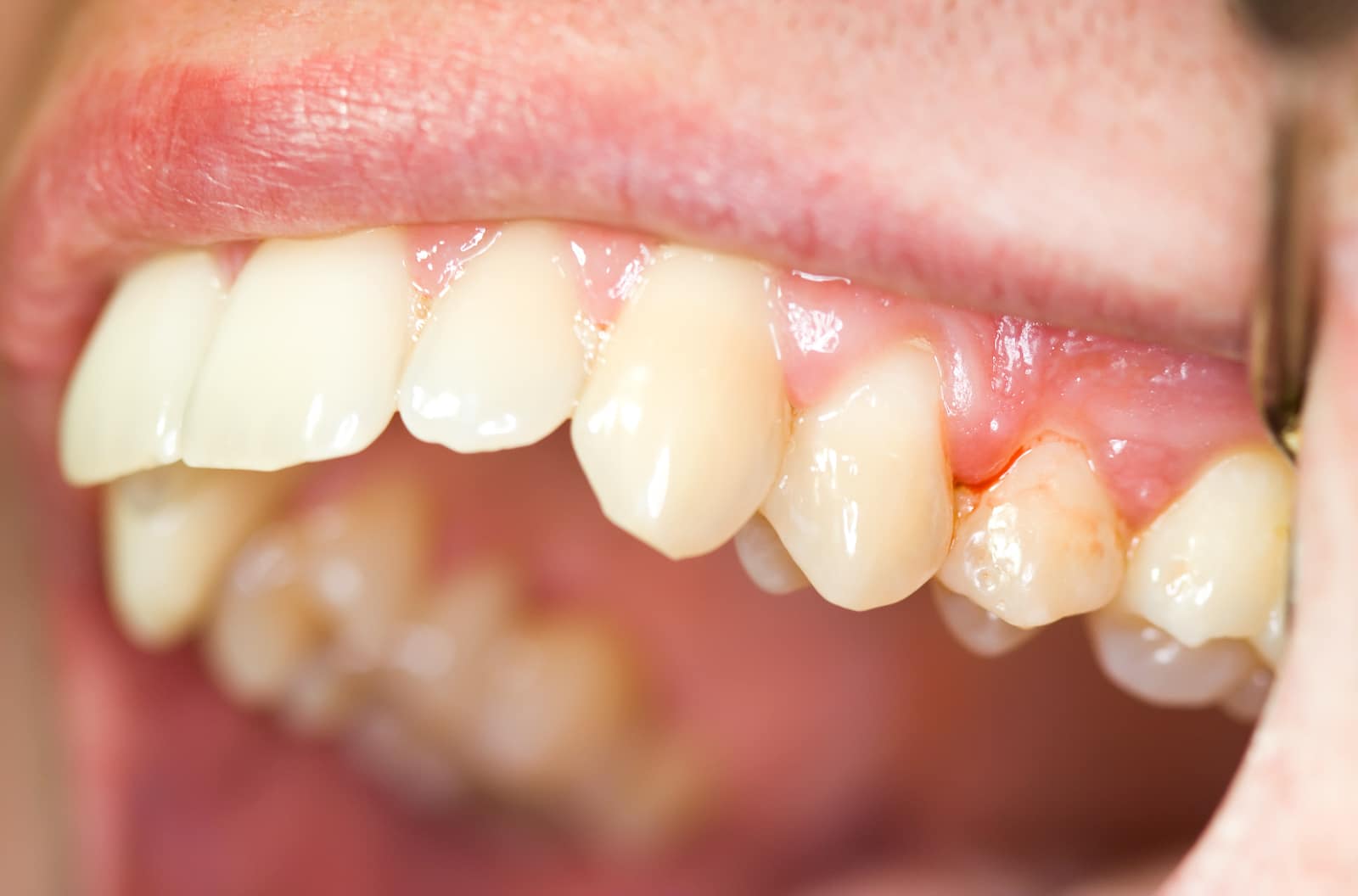
Prevention of cyst formation
Wisdom teeth that failed to grow out can lead to formation of cyst. In rare but serious development, these cysts can become cancerous. Hence, removal of wisdom tooth is indicated for these reasons.
Treatment Process
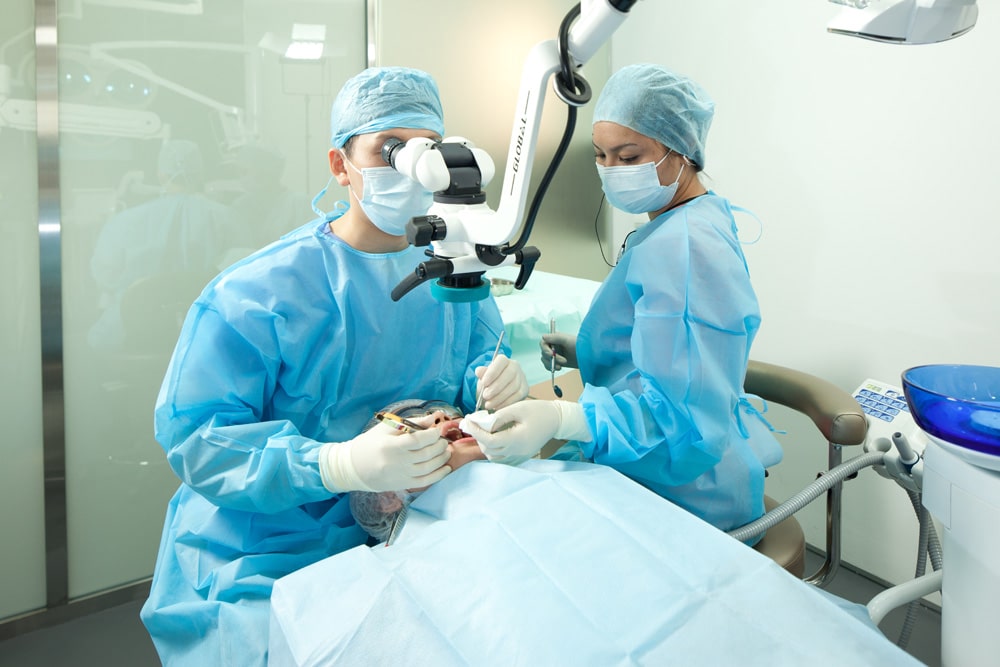
Is wisdom tooth surgery painful?
- Wisdom tooth surgery is pain-free. Local anaesthesia is given prior to the surgical procedure.
- For patients who are anxious, wisdom tooth surgery can be done under intra-venous sedation (IV sedation). The sedation which is done by a specialist helps the patient to sleep comfortably throughout the procedure.
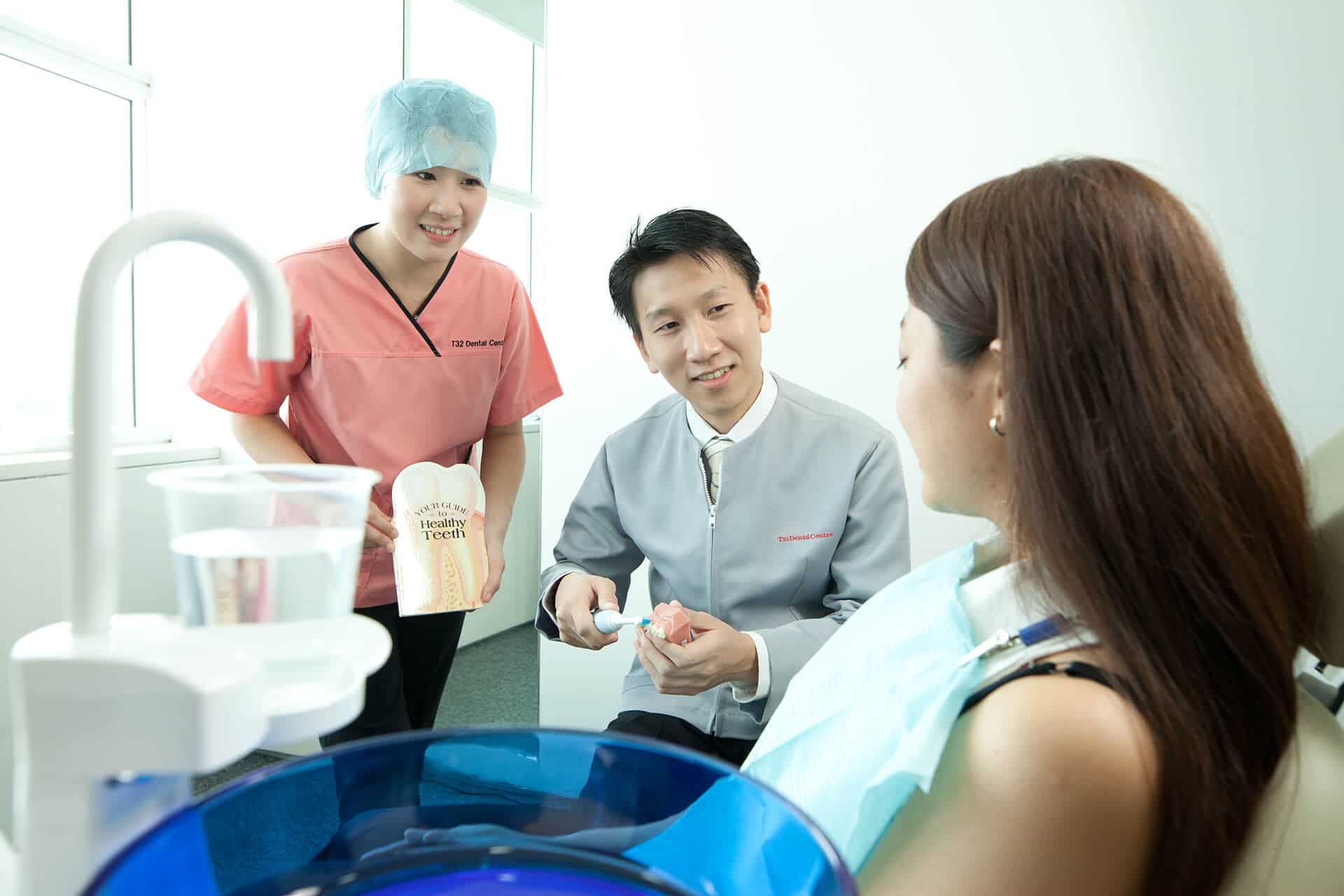
How long is wisdom tooth surgery?
- Most wisdom tooth surgery can be completed in 30 to 45 minutes.
- Most of the time is used to prepare the patient; such as ensuring that the patient has pain-free injections and is relaxed before the surgery.
- Depending on your oral condition and the number of wisdom teeth you will be extracting, your dentist will be able to advise you on the duration only after a thorough initial examination.
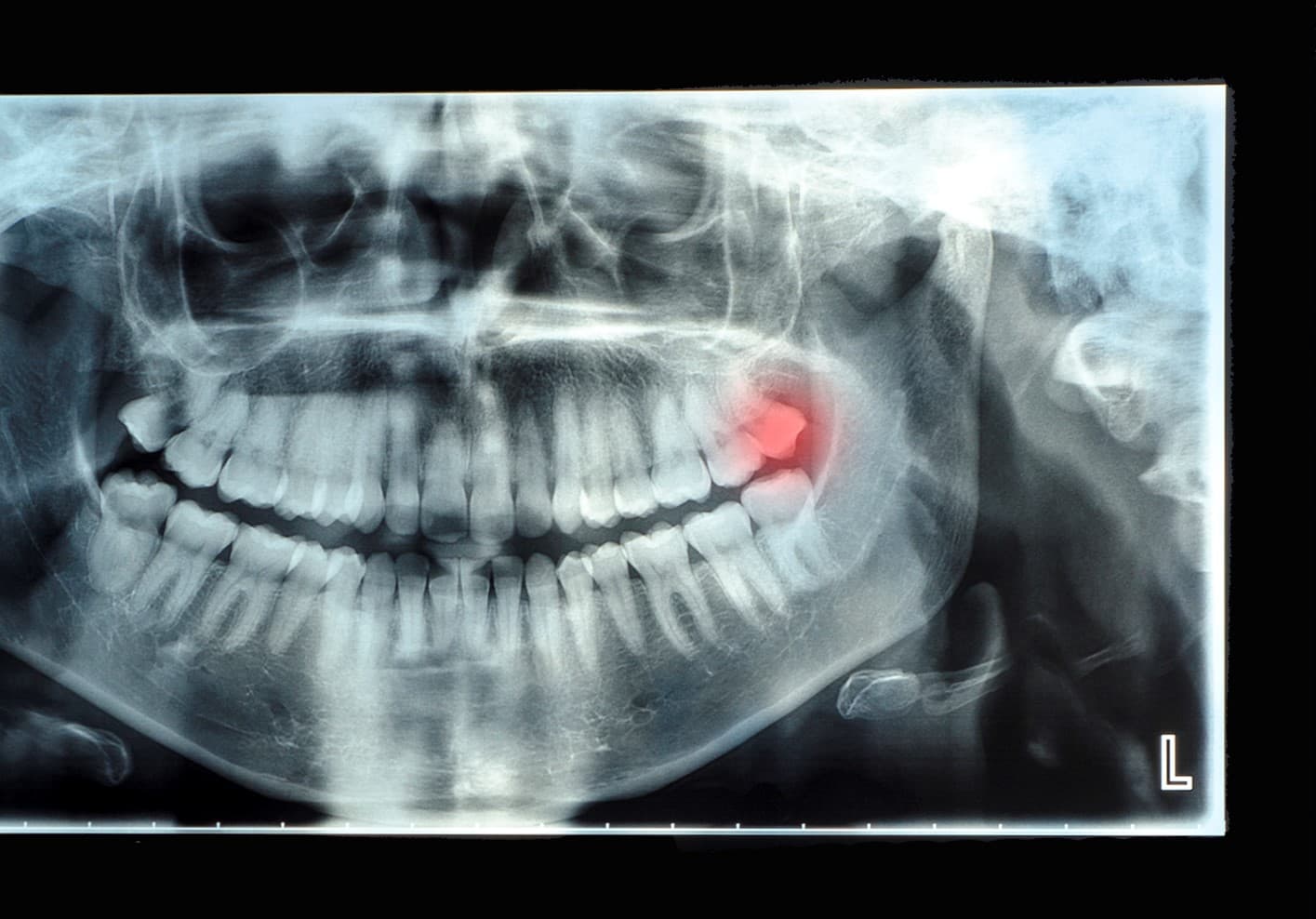
How long is the recovery period after wisdom tooth surgery?
- In general, patients will be able to eat normally after 1-2 days.
- Patients might experience mild pain for the first day but it can be easily and effectively controlled with painkillers.
- Bleeding usually stops after one day.
- Most patients are able to resume normal activities after one or two days.
Wisdom Tooth Surgery Financing

Wisdom tooth surgery costs
The cost of wisdom tooth removal will depend on the procedure a patient undergoes. This is why an initial consultation and x-rays are required to determine if you will require an extraction or a surgery. Your dentist will be the best person to advise you on the dental treatments available for your condition, price range and other fees applicable.

Medisave
If you are a Singaporean or a permanent resident of Singapore, Medisave may be utilised for the surgical component of dental treatment.Our friendly front desk staff will be happy to assist in processing your Medisave claim. For more details on your Medisave coverage, please visit our Medisave page.

Insurance claim
Please check with your insurance advisors with regards to your dental insurance coverage. Our patient care counsellors are to assist with details your insurance claim forms. You will then submit the necessary documentation to your insurer. You may enquire through our website to check if your insurance company has an existing arrangement with our clinic.
FAQs on Wisdom Tooth Surgery
A wisdom tooth surgery is a minor but delicate surgical procedure to safely remove a wisdom tooth. Local anaesthesia is applied to the area that requires extraction. If the tooth is buried under the gum or has partially erupted, after making sure that the surgical area is numbed, small incisions are made to allow for the extraction of the wisdom tooth. Sometimes, a dentist is able to cleanly extract the wisdom tooth without the need for incisions. The decision on how the procedure will progress is dependent on the examination and x-rays during the initial consultation.
Wisdom tooth surgeries are usually done under local anaesthesia. There is a small percentage of patients who are sensitive to pain and are anxious about the procedure, these patients have the option of having the removal done under intra-venous sedation. The intra-venous sedation, is done by a qualified specialist to help patients sleep comfortably throughout the procedure.
Research has shown that wisdom tooth surgery is a very safe and straight-forward procedure. With proper examination and x-rays analysis, dentists will be able to predictably and safely perform wisdom tooth surgical procedures. The x-rays helps the dentist to plan for a successful surgery and to note on details like the positioning of your wisdom tooth and how close the root is growing to the nerve that runs in the lower jaw. This is important as the compression of the nerve will cause the patient to experience some numbness to the lower lip.There are some common discomfort that the patient will experience in the initial days after the surgery. Mild pain, bleeding and swelling lasting one of two days will be experienced, however, painkillers and other medication will be prescribed to aid with pain management and healing.
I Want To Make An Enquiry/Appointment
Make An Enquiry/Appointment
Fill up the form with your particulars if you would like to learn more about our services.
I hereby give my consent to T32 Dental to send emails, SMS message, and/or call to my contact particulars provided herein

